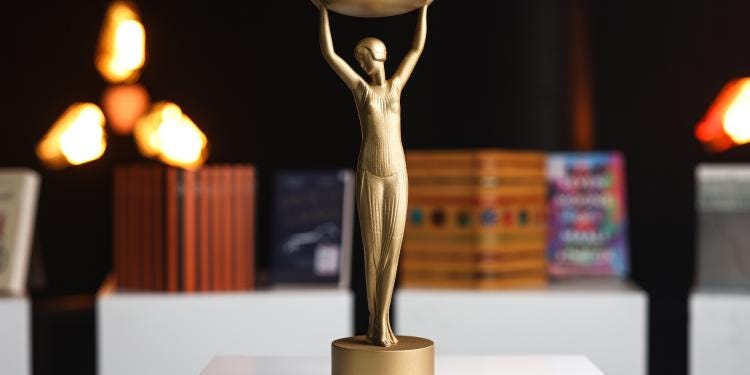On Monday, Paul Lynch, an Irish writer, won the Booker Prize for his novel “Prophet Song.”
The novel, as described by the New York Times, “imagines a near-future Ireland descending into totalitarianism, then a civil war that leads to families fleeing the country.”
Ahem.
Now, unless you are a literary type, you may be unaware of the Booker Prize. It’s an annual literary prize given to the best fiction published in Britain or Ireland and written in English.
There’s a cash prize (a little over $60,000) but the real win is the prestige of adding your name to a list that includes past winners like Salman Rushdie, Hilary Mantel, George Saunders, Margaret Atwood and V.S. Naipaul to name just a few.
It’s a very big deal in England — so big that bookies set odds on the winner. (We don’t have a similar award in America — sadly, we are a country less interested in literary fiction — although I suppose the Pulitzer Prize for fiction is similar-ish.)
The Booker Prize has a very special place in my heart because — 26 years ago — I got to go to the ceremony where it was handed out.
I went to college thinking I was going to be a novelist. I had written a bunch of short stories (unpublished!) in high school. I had big dreams of writing the Great American Novel. Or at least a great American novel.
I took a bunch of English and writing classes. In my junior year, one of my teachers — a British Jesuit priest — happened to have three tickets to the Booker ceremony.
While I would love to say I won one of them because of some great piece of writing I did, that’s not how it went. In fact, he drew names out of a hat — one male student and one female student. Mine was the male name.
And so, I was the recipient of an all-expenses paid trip to London — the first time I had ever been out of the country (unless you count Canada, which I don’t).
It was, for me, incredibly eye-opening. Obviously because London is an amazing town to be young in. But also because I got a chance, however brief, to be exposed to literary culture.
To be around people who made their living writing (and reading) made me understand that maybe I could do this too. That the writerly life was not just possible but worthy — admirable even.
The winner of the Booker Prize that year — 1997 — was “The God of Small Things,” a work of magical realism by Arundhati Roy. It was (and is) excellent. (I actually read all the books nominated for the prize that year; I LOVED “Quarantine” by Jim Crace and “Grace Notes” by Bernard MacLaverty.)
I remember the ceremony like it happened yesterday. It was that foundational for me. And to this day — more than two and a half decades later — I still follow the Booker, and try to read the novel that wins it.
That experience isn’t the only reason why I decided to write for a living. But man it was a big reason. All because my name got pulled from a hat.





Thanks for sharing, Chris!
I really appreciate the personal/non-political posts (its why I subscribed!)
Chris - wonderful story - thanks for sharing. It is fascinating to me such small chance encounters can alter the path of a life. If your name had not been drawn out of the “hat”, who knows what else might have changed in your life? I am not saying this from a “should have, would have, could have” point of view. However, as you said, had you not gone to London, you might still have had some lingering doubts about being a writer, and might have chosen a different path, even if only slightly different, which might have changed the trajectory of your life.
The moral to the story is - you might be a lucky person, and you should be entering more raffles... ¯\_(ツ)_/¯